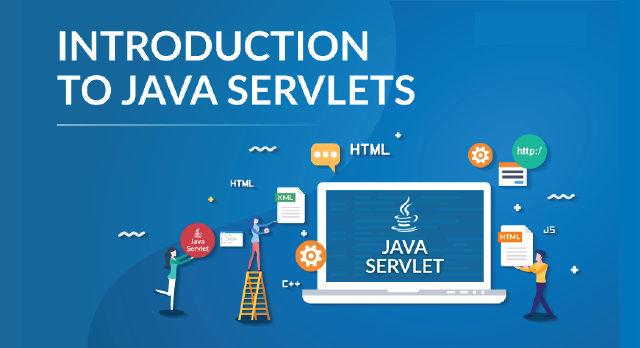Description
Welcome to “Basic Concepts of Web Development, HTTP, and Java Servlets,” an essential course designed to provide a solid foundation for anyone venturing into the dynamic world of web development. Whether you’re an aspiring web developer, a student exploring the fundamentals of web technologies, or a professional seeking to enhance your understanding of web concepts, this course is your gateway to mastering key principles, including HTTP fundamentals and Java Servlets.
Course Highlights:
Module 1: Introduction to Web Development
- Overview of Web Technologies: Explore the fundamental concepts that underpin the modern web, including client-server architecture, front-end, and back-end development.
- Importance of Web Development: Understand the significance of web development in today’s digital landscape, and its role in creating interactive and dynamic online experiences.
Module 2: Understanding HTTP
- Introduction to HTTP: Dive into the Hypertext Transfer Protocol (HTTP), the foundation of communication on the World Wide Web.
- HTTP Methods and Status Codes: Explore common HTTP methods such as GET and POST, as well as status codes to understand how information is exchanged between clients and servers.
Module 3: Basics of HTML and CSS
- HTML Fundamentals: Learn the basics of HyperText Markup Language (HTML) for creating the structure of web pages.
- CSS Essentials: Explore Cascading Style Sheets (CSS) to add styling and layout to HTML, enhancing the visual appeal of web content.
Module 4: Introduction to Java Servlets
- Servlets in Web Development: Understand the role of Java Servlets as server-side components in web applications.
- Setting Up a Servlet Environment: Learn how to set up a Java Servlet environment using popular development tools.
Module 5: Servlet Lifecycle and Request Handling
- Servlet Lifecycle: Explore the lifecycle of a Java Servlet, understanding the initialization, service, and destruction phases.
- Handling Client Requests: Learn how Java Servlets handle incoming client requests and generate appropriate responses.
Module 6: Servlets and Sessions
- Session Management: Explore session management techniques in Java Servlets, allowing the server to maintain state across multiple client requests.
- Cookies and Servlets: Understand the role of cookies in session management and data exchange between clients and servers.
Module 7: Form Handling in Servlets
- HTML Forms and Servlets: Integrate HTML forms with Java Servlets to enable user interaction and data submission.
- Processing Form Data: Learn how to process form data submitted by users through Java Servlets.
Module 8: Real-World Applications and Best Practices
- Building Dynamic Web Applications: Explore how to integrate Java Servlets into real-world web applications for dynamic and interactive content.
- Best Practices in Web Development: Understand industry best practices for web development, including code organization, security considerations, and performance optimization.
Course Format:
- Comprehensive Video Lectures: Engage with in-depth video lectures that break down complex web development concepts into easy-to-understand segments.
- Hands-On Coding Exercises: Apply your knowledge through practical coding exercises, reinforcing your understanding of each module.
- Quizzes and Assessments: Evaluate your progress with interactive quizzes and assessments at the end of each module.
- Real-World Projects: Work on practical projects that simulate common scenarios in web development, enhancing your practical skills.
Who Should Enroll:
- Beginners and aspiring web developers looking to understand the fundamentals of web development.
- Students seeking to build a strong foundation in web technologies.
- Professionals aiming to enhance their skill set with web development expertise.
Embark on this enlightening journey with “Basic Concepts of Web Development, HTTP, and Java Servlets,” and gain the confidence and proficiency needed to navigate the intricate world of web technologies. Whether you’re building the foundation for a career in web development or seeking to broaden your understanding of web concepts, this course will guide you through mastering the essentials. Join us and unlock the doors to a world of endless possibilities in web development!





Umar –
What sets this course apart is its emphasis on practical application, especially with Java Servlets. The hands-on projects and coding exercises allowed me to immediately apply the concepts I learned. This practical approach not only reinforced my understanding but also gave me the confidence to start building my own web applications. If you’re looking for a course that goes beyond theory and gets you coding, this is it!
Abdullahi –
Learning about web development, HTTP, and Java Servlets was never this engaging! The course content was presented in a way that kept me interested and motivated throughout. The interactive coding exercises and real-world examples helped solidify my understanding of the concepts. I now have a much clearer picture of how web applications work, and I can attribute that to the dynamic and immersive learning experience this course offered.
Sani –
I appreciate how this course broke down complex topics into clear and concise explanations. The instructor’s teaching style was easy to follow, making even the most intricate concepts accessible to beginners. The focus on HTTP and Java Servlets was especially beneficial, as it provided practical insights into server-side development. The course struck the right balance between theory and hands-on coding, making it an excellent choice for anyone new to web development.
Abubakar –
This course on the basic concepts of web development, HTTP, and Java Servlets provided me with a solid foundation for understanding the web. The content was well-structured, starting with the fundamentals and gradually diving into more complex concepts. The hands-on exercises and practical examples with Java Servlets helped me apply what I learned. I now feel confident in my understanding of web development principles, thanks to this comprehensive and well-designed course